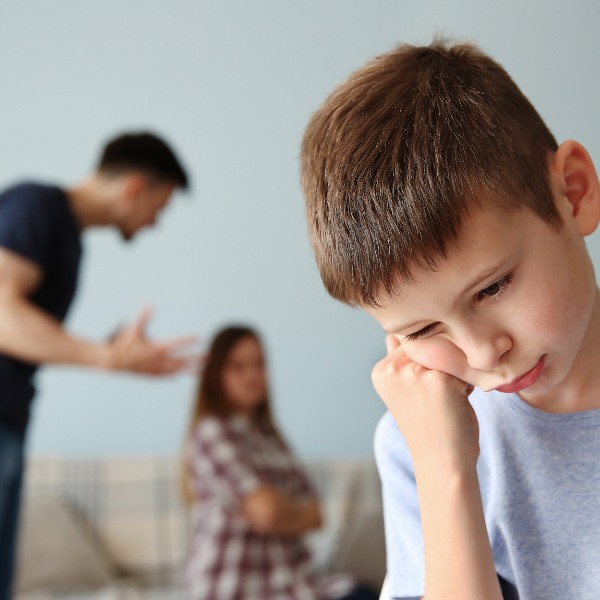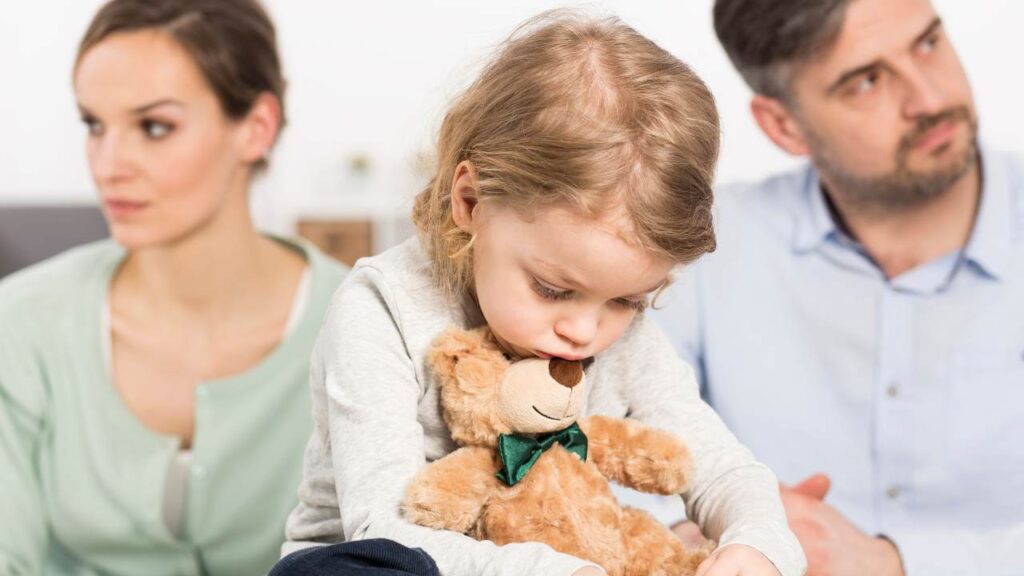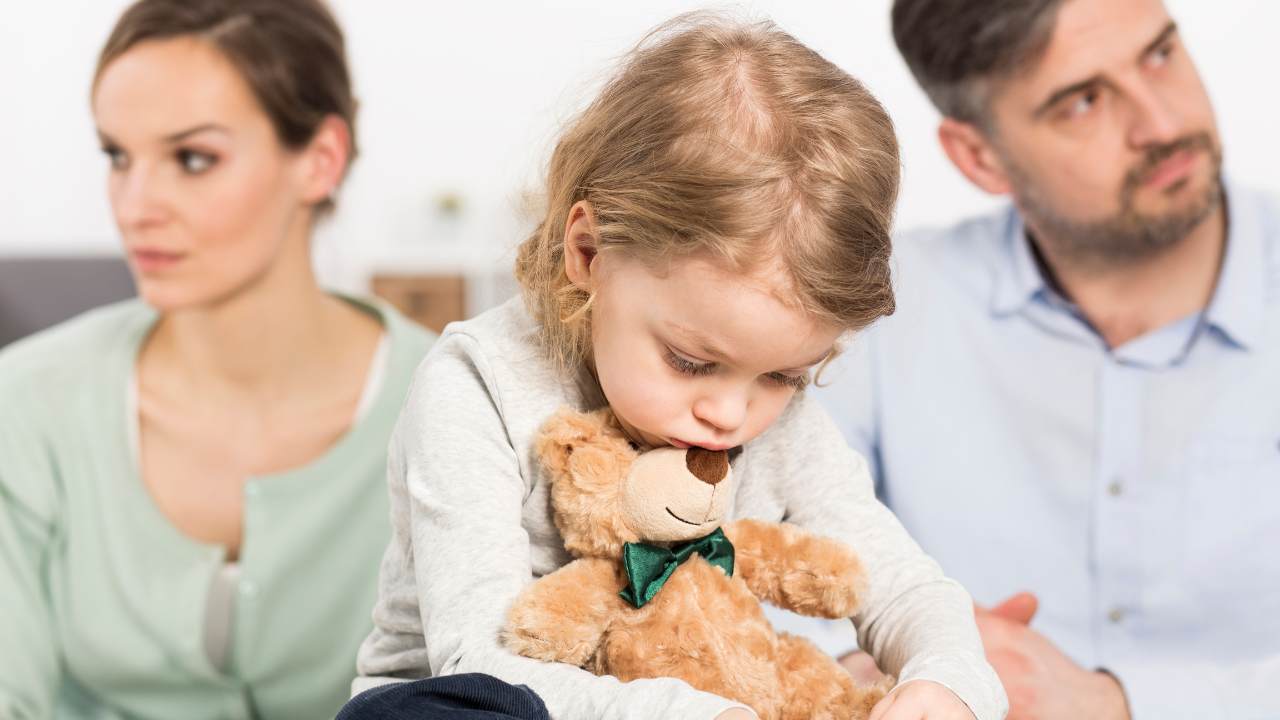Family is the foundation of a child’s upbringing, offering love, security, and guidance. But when family problems arise, they can disrupt this foundation, leaving lasting effects on a child’s growth and well-being. How does family problems affect a child? The answer is multifaceted, ranging from emotional struggles to behavioral changes.
Understanding these impacts is crucial for parents and caregivers to mitigate harm and support children through challenges. In this article, we’ll explore 11 significant ways family issues influence a child’s development.
How Does Family Problems Affect a Child?

1. Emotional Impact of Family Conflicts on Kids
When parents argue or face unresolved conflicts, children often feel overwhelmed and insecure. Constant exposure to tension can lead to anxiety, depression, or low self-esteem.
- Children may develop fears of abandonment.
- Emotional stress can disrupt their ability to form healthy relationships.
- They may bottle up emotions, leading to long-term psychological effects.
For instance, a child witnessing frequent parental disagreements might struggle to express their feelings openly, fearing it will worsen the conflict.
2. Behavioral Changes in Children Due to Family Problems
Family problems can lead to noticeable changes in a child’s behavior. They might become more aggressive, withdrawn, or defiant.
- Younger children may display tantrums or clinginess.
- Teenagers might engage in risky behaviors like substance use or skipping school.
- Academic performance often declines due to stress and lack of focus.
For example, a child dealing with family issues might struggle with concentration at school, leading to poor grades and frustration.
3. Effects of Family Issues on Children’s Academic Growth
Children from unstable family environments often face difficulties in academic performance. Lack of support, concentration, or encouragement at home can hinder their learning.
- Missing school assignments or failing exams becomes common.
- They may struggle with participation due to low confidence.
- Stress at home diverts their attention away from studies.
Teachers often observe a lack of motivation or engagement in such children, highlighting the deep connection between family stability and education.
4. Impact on Social Development
Children learn social skills largely from their family dynamics. When conflicts arise, they may struggle with interactions and friendships.
- Difficulty in trusting others due to strained family relationships.
- Avoidance of group activities due to feelings of shame or embarrassment.
- Struggling to resolve conflicts with peers.
For instance, a child from a turbulent home might avoid inviting friends over, fearing exposure to their family issues.
5. Emotional Dysregulation
Family problems often lead to emotional instability in children. They may overreact to minor triggers or shut down emotionally.
- Frequent mood swings or episodes of anger.
- Difficulty processing and managing their emotions.
- Increased risk of developing mental health disorders like anxiety or depression.
Helping children identify and express their emotions in healthy ways can prevent long-term issues.
6. Effects on Physical Health
The emotional toll of family problems often manifests in physical symptoms. Stress can lead to health problems like headaches, stomach aches, or sleep disturbances.
- Chronic stress weakens their immune system.
- They may develop eating disorders due to anxiety or lack of parental guidance.
- Lack of routine can affect their physical development.
For example, a child in a chaotic household might miss meals or face inconsistent sleep schedules, affecting their overall health.
7. How Family Problems Affect Child Development
The formative years of a child’s life are crucial for building resilience and cognitive abilities. Family problems can slow or disrupt this development.
- Delays in language or social milestones due to lack of interaction.
- Difficulty in forming a positive self-image.
- Reduced ability to solve problems or adapt to new situations.
Ensuring open communication and emotional support can counteract these effects.
8. Increased Likelihood of Developing Negative Coping Mechanisms
Children in troubled families often adopt unhealthy ways to cope with stress.
- Escapism through video games or excessive screen time.
- Emotional eating or complete lack of appetite.
- Risky behaviors in teenagers, such as smoking or substance abuse.
Parents and caregivers must identify these behaviors early and provide healthier coping strategies.
9. Strained Parent-Child Relationships

Family problems often result in strained relationships between parents and children.
- Children may feel neglected or less important.
- A lack of trust can form, causing emotional distance.
- They may resent one or both parents, leading to rebellious behavior.
Building back trust through consistent communication and empathy is essential for repairing these bonds.
10. Effects on Sibling Dynamics
Conflicts between parents or family members often trickle down to sibling relationships.
- Increased rivalry or competition for parental attention.
- Lack of cooperation due to stress and tension.
- Siblings may become overly dependent on each other for emotional support.
For example, siblings might develop a strained dynamic if they perceive unequal treatment during family disputes.
11. Role of Family in Shaping Long-Term Perspectives
Family problems can shape a child’s outlook on relationships, self-worth, and resilience.
- Negative experiences might lead to mistrust or fear of relationships.
- A resilient child might grow stronger by overcoming challenges with support.
- Children who experience resolution and healing can develop healthy coping mechanisms.
This emphasizes the importance of addressing family problems constructively and prioritizing a child’s well-being.
Related Article: 9 Surprising Effects of Family Life on Children’s Growth
Conclusion
How does family problems affect a child? The answer lies in understanding the profound and varied effects on their emotional, social, and cognitive development. Family issues can impact every aspect of a child’s life, from their mental health to their academic and social growth. Recognizing these effects allows parents and caregivers to provide the support children need to navigate challenges. With patience, empathy, and proactive steps, families can overcome conflicts and foster a nurturing environment for children to thrive.
FAQ’s
How does family problems affect a child emotionally?
Family problems can lead to emotional stress, causing anxiety, depression, or low self-esteem in children. Open communication and reassurance can help mitigate these effects.
What are the behavioral changes in children due to family conflicts?
Children may exhibit aggression, withdrawal, or defiance. Younger children might show clinginess, while teenagers could engage in risky behaviors.
How can family issues impact a child’s academic performance?
Family conflicts often distract children from studies, leading to poor concentration, lack of motivation, and declining grades.
How family problems affect child development?
Family issues can delay emotional, social, and cognitive development, hindering milestones like problem-solving and social interactions.
How can families reduce the negative effects of conflicts on children?
Resolving conflicts constructively, providing emotional support, and maintaining routines can help minimize the impact on children.





Pingback: 9 Surprising Effects | How Does Family Life Affect Children?
Pingback: how does family life impact child growth and development
Pingback: 9 Key Factors: How Can Parents Affect Children's Mental Health?